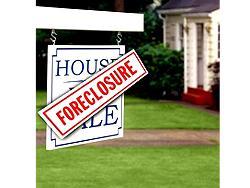Administration May Overhaul Fannie, Freddie
Washington, DC, Aug. 6, 2009--The Obama administration is considering an overhaul of Fannie Mae and Freddie Mac that would strip them of billions of dollars in bad loans and create a new structure to support the home-loan market, government officials said.
The bad debts the firms own would be placed in new government-backed financial institutions -- so-called bad banks -- that would take responsibility for collecting as much of the outstanding balance as possible. What would be left would be two healthy financial companies with a clean slate.
The moves would represent one of the most dramatic reorderings of the badly shattered housing finance system since Washington based Fannie Mae was created by Congress to support mortgage lending during the Great Depression.
Both Fannie Mae and Freddie Mac have government charters to buy home loans from banks, which they then repackage and sell to investors. The banks can then use the proceeds to offer more loans to home buyers.
The proposal, which is preliminary and one of several under discussion, is scheduled to be taken up by the White House's National Economic Council on Thursday.
"It should come as no surprise that the administration is thinking through" wholesale changes to these companies, said Andrew Williams, a Treasury Department spokesman. "We are in the preliminary stage of the process, the systematic development of options has not taken place, and no decisions have been made."
The "bad bank" would be a depository for Fannie Mae's and Freddie Mac's toxic assets. Then, the government could create new companies, if it chose to do so, that would attract private investment in support of mortgage finance.
Options for the "good banks" include consolidating the firms into one government agency, leaving mortgage finance to private banks or maintaining a hybrid model.
A major problem is that the firms own and insure trillions of dollars of existing mortgages. With the economy still in a deep recession, joblessness rising and defaults on home loans expected to continue to go up, there is great uncertainty over the size of future losses at Fannie Mae and Freddie Mac. That, in turn, is likely to drive investors from committing money to the companies.
